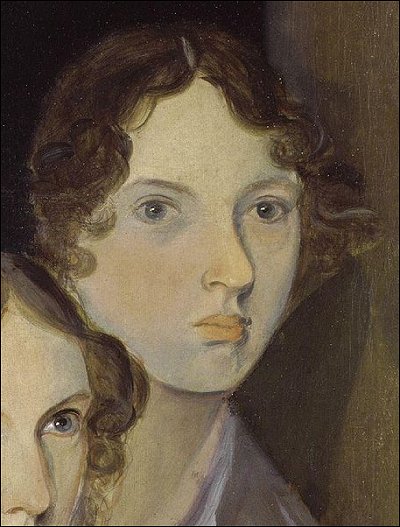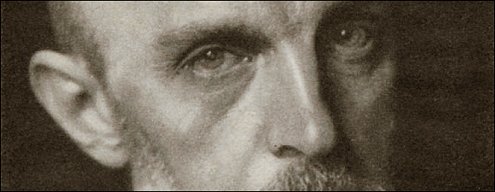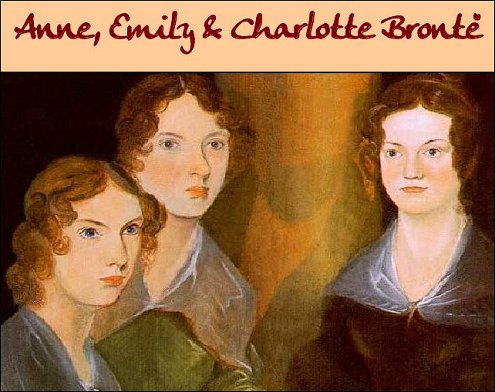Fleurs du Mal Magazine


Or see the index

W i l l e m B i l d e r d i j k
(1756-1831)
Afscheid eens Stervenden
Ja ’t sterfbed is de haven,
Waar ’t scheepjen, uit de zee
Eens levens vol van wee
En zielbedriegend slaven
Komt meeren aan de ree’.
Wat treurt gy, lieve Vrinden,
Wat, teêr geliefde Gâ,
Indien my Gods genâ
Die blijde ree’ doet vinden?
Wat is er vroeg of spâ?
Of wie zal zich beklagen
Die ’s levens heilkust zocht,
En d’ondernomen tocht
In minder tal van dagen
Ten einde brengen mocht?
Neen, danken wy d’Algoede,
Voor ’t overgunstig weêr,
Hetgeen ons over ’t meir
Voor zoo veel andren spoedde:
En geeft Hem lof en eer.
Ja ’k mag u welkom heeten,
ô Hoogstgewenschte kust,
Gy, Paradijs van lust,
Waar, vrij van de aardsche keten,
De Ziel van kommer rust!
Ja, streef mijn hobblend bootjen,
En splintre ’t op den rand
Van ’t steeds gewenschte land;
Ik vrees niet voor dat stootjen,
Want Jezus grijpt mijn hand.
Met barningvolle klippen
Zij heel de kant omzet,
En hulk en vracth verplet;
Die hand zal niets ontglippen
Die wat zy aangrijpt, redt.
Ook u zal zy geleiden
Door ’t dobbrend zeegebruisch
In spijt van ’t stormgedruisch;
Waar ik u ga verbeiden
In ’t vaderlijk huis.
Dus staakt uw teder weenen;
En geeft my d’afscheidsgroet
Met onboeroerd gemoed:
Haast zullen wy hereenen
By ’s Hemels Englenstoet.
1824
.jpg)
Willem Bilderdijk gedichten
k e m p i s p o e t r y m a g a z i n e
More in: Bilderdijk, Willem
.jpg)
Zum Nachdenken für Herrenreiter
Franz Kafka (1883-1924)
Nichts, wenn man es überlegt, kann dazu verlocken, in einem Wettrennen der erste sein zu wollen. Der Ruhm, als der beste Reiter eines Landes anerkannt zu werden, freut beim Losgehn des Orchesters zu stark, als daß sich am Morgen danach die Reue verhindern ließe.
Der Neid der Gegner, listiger, ziemlich einflußreicher Leute, muß uns in dem engen Spalier schmerzen, das wir nun durchreiten nach jener Ebene, die bald vor uns leer war bis auf einige überrundete Reiter, die klein gegen den Rand des Horizonts anritten.
Viele unserer Freunde eilen den Gewinn zu beheben und nur über die Schultern weg schreien sie von den entlegenen Schaltern ihr Hurra zu uns; die besten Freunde aber haben gar nicht auf unser Pferd gesetzt, da sie fürchteten, käme es zum Verluste, müßten sie uns böse sein, nun aber, da unser Pferd das erste war und sie nichts gewonnen haben, drehn sie sich um, wenn wir vorüberkommen und schauen lieber die Tribünen entlang.
Die Konkurrenten rückwärts, fest im Sattel, suchen das Unglück zu überblicken, das sie getroffen hat, und das Unrecht, das ihnen irgendwie zugefügt wird; sie nehmen ein frisches Aussehen an, als müsse ein neues Rennen anfangen und ein ernsthaftes nach diesem Kinderspiel.
Vielen Damen scheint der Sieger lächerlich, weil er sich aufbläht und doch nicht weiß, was anzufangen mit dem ewigen Händeschütteln, Salutieren, Sich-Niederbeugen und In-die-Ferne-Grüßen, während die Besiegten den Mund geschlossen haben und die Hälse ihrer meist wiehernden Pferde leichthin klopfen.
Endlich fängt es gar aus dem trüb gewordenen Himmel zu regnen an.
.jpg)
Franz Kafka: Betrachtung 1913 – Für M.B.
fleursdumal.nl magazine
More in: Franz Kafka, Kafka, Franz, Kafka, Franz
.jpg)
Gerard Manley Hopkins
(1844-1889)
The Handsome Heart
at a Gracious Answer
‘But tell me, child, your choice; what shall I buy
You?’—‘Father, what you buy me I like best.’
With the sweetest air that said, still plied and pressed,
He swung to his first poised purport of reply.
What the heart is! which, like carriers let fly—
Doff darkness, homing nature knows the rest—
To its own fine function, wild and self-instressed,
Falls light as ten years long taught how to and why.
Mannerly-hearted! more than handsome face—
Beauty’s bearing or muse of mounting vein,
All, in this case, bathed in high hallowing grace…
Of heaven what boon to buy you, boy, or gain
Not granted?—Only … O on that path you pace
Run all your race, O brace sterner that strain!
![]()
Gerard Manley Hopkins poetry
kempis poetry magazine
More in: Hopkins, Gerard Manley
.jpg)
Emily Jane Brontë
(1818-1848)
S t a r s
Ah! why, because the dazzling sun
Restored our Earth to joy,
Have you departed, every one,
And left a desert sky?
All through the night, your glorious eyes
Were gazing down in mine,
And, with a full heart’s thankful sighs,
I blessed that watch divine.
I was at peace, and drank your beams
As they were life to me;
And revelled in my changeful dreams,
Like petrel on the sea.
Thought followed thought, star followed star,
Through boundless regions, on;
While one sweet influence, near and far,
Thrilled through, and proved us one!
Why did the morning dawn to break
So great, so pure, a spell;
And scorch with fire the tranquil cheek,
Where your cool radiance fell?
Blood-red, he rose, and, arrow-straight,
His fierce beams struck my brow;
The soul of nature sprang, elate,
But mine sank sad and low!
My lids closed down, yet through their veil
I saw him, blazing, still,
And steep in gold the misty dale,
And flash upon the hill.
I turned me to the pillow, then,
To call back night, and see
Your worlds of solemn light, again,
Throb with my heart, and me!
It would not do–the pillow glowed,
And glowed both roof and floor;
And birds sang loudly in the wood,
And fresh winds shook the door;
The curtains waved, the wakened flies
Were murmuring round my room,
Imprisoned there, till I should rise,
And give them leave to roam.
Oh, stars, and dreams, and gentle night;
Oh, night and stars, return!
And hide me from the hostile light
That does not warm, but burn;
That drains the blood of suffering men;
Drinks tears, instead of dew;
Let me sleep through his blinding reign,
And only wake with you!

Emily Brontë poetry
fleursdumal.nl magaziine
More in: Anne, Emily & Charlotte Brontë, Brontë, Anne, Emily & Charlotte

J. H. L e o p o l d
(1865-1925)
P a u l V e r l a i n e †
I
Men mocht wel willen in donzen woorden
van hem te horen, nu hij pas
dood is en wat zijn leven was
voor ‘t eerste stil gaat worden; stoorden
nu woorden niet in zijn beginnen
der vredigheid hem toegebracht
en in de schuwe ernst betracht
door ons, die ons willen bezinnen
over het sidderende, dat wij vonden
in ons; zó het opeens lag neer
in donker, lijden van een zeer
verborgen iets en zeer geschonden.
II
Hoe zoet gesloten, toegesloten
en goed geborgen in donkernis
buiten, waar lente komende is
met regen onder de lucht de blote
een man, die heeft zijn afgewende
leven stil voor zich heen gevoerd,
een povere maar een ontroerd
tedere en hij in zijn ellende
was tot de enige zin gekomen
des levens: dat wij wezen zouden
verscholen, in geduld gehouden
en wegverloren, zó eerst vromen.
Een wijze – en om de dode is veel
van zoetheid en mijmering gebleven
en het bemoeien en dóórleven
der mensen heeft aan hem geen deel.
Januari 1896
J.H. Leopold gedicht: Paul Verlaine (1844 – 1896)

k e m p i s p o e t r y m a g a z i n e
More in: Archive K-L, Leopold, J.H., Verlaine, Paul

E u g e n e M a r a i s
(1871-1936)
W i n t e r n a g
O koud is die windjie
en skraal.
En blink in die dof-lig
en kaal,
so wyd as die Heer se genade,
lê die velde in sterlig en skade.
En hoog in die rande,
versprei in die brande,
is die grassaad aan roere
soos winkende hande.
O treurig die wysie
op die ooswind se maat,
soos die lied van ‘n meisie
in haar liefde verlaat.
In elk grashalm se vou
blink ‘n druppel van dou,
en vinnig verbleik dit
tot ryp in die kou!
Eugene Marais Gedigte
fleursdumal.nl magazine
More in: 4SEASONS#Winter, Archive M-N, Eugène Marais, Marais, Eugène
.jpg)
G e o r g e E l i o t
(Mary Ann Evans, 1819 – 1880)
Mid My Gold-Brown Curls
‘Mid my gold-brown curls
There twined a silver hair:
I plucked it idly out
And scarcely knew ’twas there.
Coiled in my velvet sleeve it lay
And like a serpent hissed:
"Me thou canst pluck & fling away,
One hair is lightly missed;
But how on that near day
When all the wintry army muster in array?"
Roses
You love the roses – so do I. I wish
The sky would rain down roses, as they rain
From off the shaken bush. Why will it not?
Then all the valley would be pink and white
And soft to tread on. They would fall as light
As feathers, smelling sweet; and it would be
Like sleeping and like waking, all at once!
.jpg)
George Eliot poetry
kempis poetry magazine
More in: Eliot, George
.jpg)
W i l l i a m S h a k e s p e a r e
(1564-1616)
T H E S O N N E T S
16
But wherefore do not you a mightier way
Make war upon this bloody tyrant Time?
And fortify your self in your decay
With means more blessed than my barren rhyme?
Now stand you on the top of happy hours,
And many maiden gardens yet unset,
With virtuous wish would bear you living flowers,
Much liker than your painted counterfeit:
So should the lines of life that life repair
Which this (Time’s pencil) or my pupil pen
Neither in inward worth nor outward fair
Can make you live your self in eyes of men.
To give away your self, keeps your self still,
And you must live drawn by your own sweet skill.
![]()
k e m p i s p o e t r y m a g a z i n e
More in: -Shakespeare Sonnets
.jpg)
P. A. d e G é n e s t e t
(1829 – 1861)
Schitterende starre
Ik zag een starre schittren,
Maar ’t was niet aan den trans;
’t Was in twee dierbre oogen,
Een starretje vol glans.
’t Betooverde en bezielde
Mijn hart, mijn geest, mijn jeugd,
’t Spreidde in mijn blijde woning
Gods licht en vrede en vreugd.
Het blonk op al mijn wegen
Zoo vriendelijk en zoo zacht,
Een zonnetje van zegen,
Te morgen en te nacht.
Het blonk van heilge liefde
Voor zooveel goeds en groots;
Het scheen een licht des levens,
Maar ’t bleek een boô des doods!
Dat was het Teringstarretje –
Beware u Gods genaê,
Dat gij het nooit ziet schittren
In ’t oog van kind of gaê!
.jpg)
P.A. de Génestet gedichten
k e m p i s p o e t r y m a g a z i n e
More in: Génestet, P.A. de

Charles Dickens
(1812-1870)
The Hymn of the Wiltshire Laborers
O God! who by Thy prophet’s hand
Didst smite the rocky brake,
Whence water came, at Thy command,
Thy people’s thirst to slake;
Strike, now, upon this granite wall,
Stern, obdurate, and high;
And let some drops of pity fall
For us who starve and die!
The God who took a little child
And set him in the midst,
And promised him His mercy mild,
As, by Thy Son, Thou didst:
Look down upon our children dear,
So gaunt, so cold, so spare,
And let their images appear
Where lords and gentry are!
O God! teach them to feel how we,
When our poor infants droop,
Are weakened in our trust in Thee,
And how our spirits stoop;
For, in Thy rest, so bright and fair,
All tears and sorrows sleep:
And their young looks, so full of care,
Would make Thine angels weep!
The God who with His finger drew
The judgment coming on,
Write, for these men, what must ensue,
Ere many years be gone!
O God! whose bow is in the sky,
Let them not brave and dare,
Until they look (too late) on high,
And see an Arrow there!
O God, remind them! In the bread
They break upon the knee,
These sacred words may yet be read,
"In memory of Me!"
O God! remind them of His sweet
Compassion for the poor,
And how He gave them Bread to eat,
And went from door to door!
.jpg)
Charles Dickens poetry
kempis poetry magazine
More in: Charles Dickens, Dickens, Charles
.jpg)
W i l l e m K l o o s
(1859-1938)
Doodgaan
De bomen dorren in het laat seizoen,
En wachten roerloos de nabije winter…
Wat is dat alles stil, doodstil… ik vind er
Mijn eigen leven in, dat heen gaat spoên.
Ach, ‘k had zo graag heel, héél veel willen doen,
Wat Verzen en wat Liefde, — want wie mint er
Te sterven zonder dees? Maar wie ook wint er
Ter wereld iets door klagen of door woên?
Ik ga dan stil, tevreden en gedwee,
En neem geen ding uit al dat Leven mee
Dan dees gedachte, gonzende in mij om:
Men moet niet van het lieve Dood-zijn ijzen:
De dode bloemen komen niet weerom,
Maar IK zal heerlijk in mijn Vers herrijzen
Ik ween om bloemen
in de knop gebroken
Ik ween om bloemen, in de knop gebroken
En vóór de ochtend van haar bloei vergaan,
Ik ween om liefde, die niet is ontloken,
En om mijn harte dat niet werd verstaan:
Gij kwaamt, en ‘k wist — gij zijt weer heen-gegaan…
Ik heb het nauw gezien, geen woord gesproken:
Ik zat weer roerloos, nà die korte waan
In de eeuwge schaduw van mijn smart gedoken:
Zo als een vogel in de stille nacht
Op ééns ontwaakt, omdat de hemel gloeit,
En denkt, ‘t is dag, en heft het kopje en fluit,
Maar éér ‘t zijn vaakrige oogjes gans ontsluit,
Is het weer donker, en slechts droevig vloeit
Door ‘t sluimerend geblaarte een zwakke klacht.
![]()
Willem Kloos: 2 gedichten
kempis poetry magazine
More in: Kloos, Willem

Anne Brontë
(1820-1849)
The Penitent
I mourn with thee, and yet rejoice
That thou shouldst sorrow so;
With angel choirs I join my voice
To bless the sinner’s woe.
Though friends and kindred turn away,
And laugh thy grief to scorn;
I hear the great Redeemer say,
“Blessed are ye that mourn.”
Hold on thy course, nor deem it strange
That earthly cords are riven:
Man may lament the wondrous change,
But “there is joy in heaven!”
A Reminiscence
Yes, thou art gone! and never more
Thy sunny smile shall gladden me;
But I may pass the old church door,
And pace the floor that covers thee,
May stand upon the cold, damp stone,
And think that, frozen, lies below
The lightest heart that I have known,
The kindest I shall ever know.
Yet, though I cannot see thee more,
‘Tis still a comfort to have seen;
And though thy transient life is o’er,
‘Tis sweet to think that thou hast been;
To think a soul so near divine,
Within a form so angel fair,
United to a heart like thine,
Has gladdened once our humble sphere.
Lines composed in a Wood
on a windy Day
My soul is awakened, my spirit is soaring
And carried aloft on the wings of the breeze;
For above and around me the wild wind is roaring,
Arousing to rapture the earth and the seas.
The long withered grass in the sunshine is glancing,
The bare trees are tossing their branches on high;
The dead leaves beneath them are merrily dancing,
The white clouds are scudding across the blue sky
I wish I could see how the ocean is lashing
The foam of its billows to whirlwinds of spray;
I wish I could see how its proud waves are dashing,
And hear the wild roar of their thunder to-day!
The Arbour
I’ll rest me in this sheltered bower,
And look upon the clear blue sky
That smiles upon me through the trees,
Which stand so thick clustering by;
And view their green and glossy leaves,
All glistening in the sunshine fair;
And list the rustling of their boughs,
So softly whispering through the air.
And while my ear drinks in the sound,
My winged soul shall fly away;
Reviewing lone departed years
As one mild, beaming, autumn day;
And soaring on to future scenes,
Like hills and woods, and valleys green,
All basking in the summer’s sun,
But distant still, and dimly seen.
Oh, list! ’tis summer’s very breath
That gently shakes the rustling trees–
But look! the snow is on the ground–
How can I think of scenes like these?
‘Tis but the FROST that clears the air,
And gives the sky that lovely blue;
They’re smiling in a WINTER’S sun,
Those evergreens of sombre hue.
And winter’s chill is on my heart–
How can I dream of future bliss?
How can my spirit soar away,
Confined by such a chain as this?

Acton Bell (Anna Brontë) poetry
fleursdumal.nl magazine
More in: Anne, Emily & Charlotte Brontë, Brontë, Anne, Emily & Charlotte
Thank you for reading Fleurs du Mal - magazine for art & literature